
A citizen protests
Sir,
The individual who killed Punjab Governor Salman Taseer was sent to the gallows because he took the law into his own hands. By presenting a cheque of Rs 50,000 to a citizen as a reward for killing two robbers, the Sindh Police may have reinforced the same trend in lawlessness and vigilantism. The institutional endorsement of private killings conveys some very convoluted messages. That the state has abandoned its responsibility to protect its citizens; that the police is no longer a relevant institution; that citizens must arm and protect themselves and that private execution of suspected criminals will be rewarded as an act of bravery. A nuclear state intentionally reversing its course towards pre-historic times is completely incomprehensible.
It did not occur to the police that the killing of the two robbers was a result of its own failure to apprehend the criminals – ever ready to pounce on their prey at every intersection of the city. It did not occur to the police that the killing was a result of its own failure to establish an effective emergency incident reporting and response system. It did not occur to the police that the killing was a result of its own failure to take back 20 million weapons in the hands of civilians. It did not occur to the police that the killing was a result of its own failure to ensure that IMEI of all snatched phones is disabled and that all shops selling stolen phones are sealed.
Details of how these tasks can be accomplished have been repeatedly printed in newspaper articles and also sent to senior police officials. It is sad that the Sindh Police refuses to rethink and reform its processes. Instead, it has chosen to further relinquish its responsibilities and encourage citizens to take over the police function.
As a citizen, I protest against this mindlessness. The Sindh Police ought to reform itself and stop being a parasite at the tax payers’ expense. Citizens have a right to demand its shutdown if they are the ones who must also kill the robbers.
Naeem Sadiq,
Karachi.
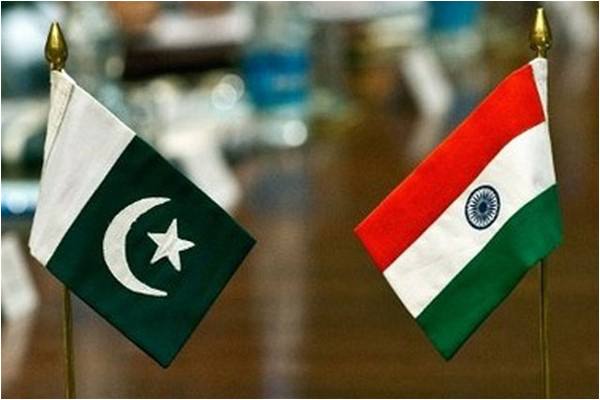
Kashmir dispute
Sir,
Indians are committing massive atrocities and violations of human rights, unleashed hell on the innocent and unarmed Kashmiris in the held valley. So far, 55 people, mostly youth, have reportedly been killed and over 1,800 injured. Among them are 350 who are said to be in critical condition, while over a 1,000 protesters who were fired upon with pellet bullet guns have nearly lost their eyesight.
The Indians have adopted a novel way of brutally torturing victims; they resort to attacking the hospitals where innocent victims are getting treatment. They ransack hospitals, manhandle the staff and harass them to stop treating the injured. They injured are denied access to basic emergency services and are denied their right to healthcare. Imposition of curfews has doubled their plight. This is adding more miseries and is resulting in even more casualties.
Indian law-enforcing agencies are using new techniques and tactics to arrest, detain and humiliate Hurriyat Conference leaders, even the elderly Syed Ali Geelani. The use of pellet bullets is another new tactic to deprive the youth of their eyes.
Ironically, the UN, the world community and the media are all silent; they are being denied access in the valley, phone lines, mobile services and internet are disconnected. Besides, there is a bias in the reporting; there seems to be a total blackout of the atrocities being meted out to the people of Kashmir. A State Department spokesman said the United States was watching the events in the valley, but meaningfully said India must fight terrorism, which implied that perhaps the Kashmir movement was not a freedom struggle. This is clear duplicity on the part of the US. It is clear that America does not want to sour its growing relations with India.
FZ Khan,
Islamabad.
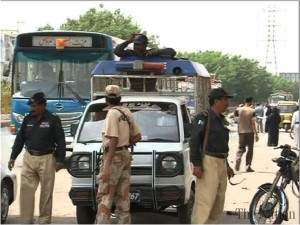
Undoing of Sindh police
Sir,
Political and security analysts have been blaming Sind police for being politicized and failing to perform their basic duty of maintaining law and order and poor prosecution of criminals.
The unfortunate bitter reality is that by 1996, the police, under the leadership of Naseerullah Babar, had successfully clamped down on criminals, kidnappers, target killers and extortionists. Operation Blue Fox led by the Sindh Police and Pakistan Rangers, planned by the FIA and IB, was launched in 1992 by PM Nawaz and pursued by PM Benazir in 1993 till its logical conclusion in 1994. This operation was carried out by a responsible civilian government with no links to criminals, and it successfully cleansed Karachi with the joint cooperation of the GHQ.
Fast forward to the Musharraf tenure, when 600 of these police officers were systematically murdered by target killers for carrying out their duties, allegedly by a powerful political party, which was an ally of a military dictator. Vacancies in police were offered as a favor to Musharraf’s political allies. The criminal economy became a billion-dollar industry, with target killers based abroad entering and exiting the country without any documentation and money transferred to foreign safe havens.
The coalition government that ruled Sindh from 2009 onward patronized criminals, and another 200 police officers were eliminated by target killers for performing their constitutional duties. Police morale and professionalism became the victim of the criminal economy, destroying Sindh. Unless those responsible for the cold blooded murder of police officers, traders, journalists like Wali Babar, Baldia Factory massacre, 12 May etc are given exemplary punishments, crime will continue to haunt Sindh and the rest of Pakistan. Recruitment in police must be cleansed of political nominees and vacancies filled strictly through merit. The solution to Sindh’s lawlessness is not subjecting it to military rule, but good governance through merit based appointments, accountability with no compromises on rule of law, whatever the political cost. The constitution does not give power to elected governments to patronize crime, but only deliver to people that which the constitution guarantees them.
Malik Tariq Ali,
Lahore.
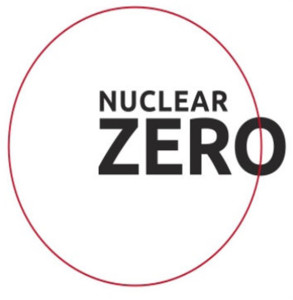
Wrong picture
Sir,
Like previous years, once again this year the PML-N government celebrated the so-called “Yom-e-Takbeer” on May 28, when on this date in 1998, Pakistan conducted its first atomic explosion. May 28 was officially declared as Yum-e-Takbeer by then Prime Minister Nawaz Sharif. Immediately after the successful test explosions, a festive atmosphere was created all over the country. Our government of the day awarded the scientists who contributed to the successful test with medals, while commemorative monuments depicting Chagi Hills were erected all over the country, “proudly” announcing and showing the civilized world that we the people of Pakistan were capable of making a weapon of mass destruction.
This year, it was just a coincidence that US President Barack Obama paid tribute to the victims of Hiroshima on May 17. According to the news, Obama paid moving tributes to the victims of the first atomic bomb, offering a comforting embrace to a tearful man who survived the devastating attack on Hiroshima. It was 15:15 local time in Japan when the first atomic bomb “Little Boy” was dropped on the city of Hiroshima on August 6, 1945, which resulted in the immediate deaths of 140,000 people.
I want to salute the courage of President Obama, who showed the world the importance of peace and love for humanity. What a show of greatness by the president. In the visit of President Obama to Hiroshima there is a message for the government of Bangladesh also, who is carrying out executions of those who in one way or the other sided with the Pakistan Army in 1971, The Ex-President of Pakistan Gen Pervez Musharraf during a visit to Bangladesh specifically paid a visit to the monument of martyrs of 1971, which was a clear message from the government of Pakistan that whatever happened in 1971 was tragic and the government and people of Pakistan feel sorry for that, but the government of Bangladesh, just for political point scoring and violating the 1974 tripartite agreement, is bent upon hanging the leaders of Jamaat-e-Islami.
Exactly seven years back, President Obama delivered a memorable speech in Prague calling upon the nations of the world for the elimination of atomic weapons, a speech which resulted in honoring him with the prestigious Nobel Peace Prize.
The bomb “Little Boy” was far less lethal and deadly than the present day’s atomic bombs. I humbly request the government to cancel celebrations of weapons of mass destruction, and that the world be told that we are a peace loving country, and leave no stone unturned in persuading the nuclear powers of the world to destroy all WMDs and make this plant a safe haven for our future generations.
Aamir Aqil,
Lahore.
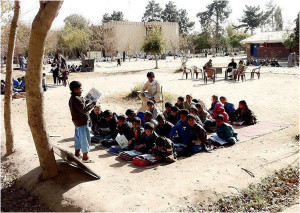
Dilemma
Sir,
Punjab Chief Minister Shahbaz Sharif has announced to improve the neglected health and education sectors in the province. Oh well, better late than never. Health and education are basic needs of every citizen. Unfortunately, both sectors remained the least attended in the history of Pakistan. The present federal and Punjab governments of the PML-N didn’t pay attention towards these sectors. Their prime focus was to curb terrorism, handle the energy crisis, construct motorways, run metro bus services and orange line trains.
The poor people cannot afford the fee being charged in private schools and hospitals. They have no option but to leave themselves at the mercy of substandard services of public sector institutions. Treatment and medicines in government hospitals cannot be procured without any influential backer. The poor teaching staff, improper management and lack of infrastructure are major problems in education and health sectors. There is a dire need to improve the standard of hospitals and educational institutes in Pakistan as a top priority.
Mansoor Ahmed,
Faisalabad.
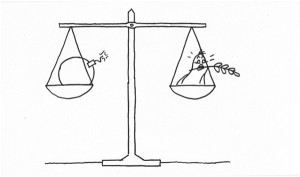
Quetta attack
Sir,
The suicide bombing in Quetta earlier this week that killed at least 70 people and injured more than 100 was one of the most despicable attacks reported this year. It’s the deadliest such attack to date against the Pakistani lawyer community, which has been targeted by terrorists for some time. The attack took place as a group of lawyers gathered to grieve the death of Balochistan Bar Association (BBA) President Bilal Anwar Kasi, who died in a gun attack earlier in the day.
Just minutes after the attack, Balochistan Chief Minister Sanaullah Zehri, claimed that the attack was orchestrated by the Indian intelligence agency, the Research and Analysis Wing (RAW). In Pakistan, incidents of terror are often blamed on RAW or any other foreign intelligence agency that the country’s leadership considers hostile.
A few hours after the attack, Jamaat-ul-Ahrar (JA), a breakaway faction of the Pakistani Taliban and the Islamic State (IS), took responsibility (separately) for the attack. Moreover, JA was also behind the Lahore park bombing that killed 75 people in March and the Bacha Khan University attack in Charsadda that killed more than 20 people in January.
What is particularly shocking about the Quetta attack is JA’s ability to carry out the bombing on a gathering that only came together just hours after the death of a senior lawyer. The shooting of BBA’s president that took place earlier in the day may have also been planned by the group. The motive might be to provoke the city’s lawyer community into protest in order to carry out the bigger attack. In both cases, the intent of maximizing the number of causalities is evident.
What is more worrying is that JA’s bombings are not indiscriminate (targeting random civilians); rather the attacks carried out by the group appear to be meticulously planned, suggesting that the militant outfit’s ability to penetrate Pakistan’s soil and attack at will remains intact.
After the attack in Quetta, Chief of Army Staff General Raheel Sharif ordered a nationwide combing operation to target militant sleeper cells. The newly ordered “combing operation” is reminiscent of a similar order that was issued by the military chief after the Lahore attack, promising to eliminate all “no go areas” in Punjab. The fate of the Punjab operation is before us: the highly anticipated military operation vanished only weeks after targeting some low-level bandits in the province’s badlands, leaving behind the province’s sectarian militant base, with known leanings towards IS, untouched. One wonders how this latest order will be helpful when the two-year-long vicious hunt has not produced desired results to date.
Moreover, bizarre statements released by the country’s top leadership after the attack also reflect how regionalized and politicized Pakistan’s counterterrorism efforts are. The problem is not just with a general inefficiency in tackling such threats, but also with the selective implementation of the National Action Plan, a 20-point nationwide counterterrorism strategy.
For instance, JA’s attack in Quetta, Balochistan’s capital, which killed scores of innocent people, was defined by the country’s top civilian and military leadership as an attack by the “enemies of the country” on the China-Pakistan Economic Corridor (CPEC) project. The group’s earlier attacks in Punjab (Lahore park bombing) and Khyber Pakhtunkhwa (Bacha Khan University) were not linked to any regional projects.
However, what is often ignored by the country’s leadership and remains overlooked is the deepening inter-provincial bickering concerning CPEC’s implementation, which is likely to cast a shadow on the project. With the Pakistani Taliban in Afghanistan forging alliances with Islamic State, terrorist threats for Islamabad are only going to get worse.
The fact remains, however, that in order to avoid blame and to disguise incompetence, the strategy of pinning the blame on foreign countries has been adopted by the Pakistani leadership as an ‘easy way out.’ Rather than wasting time and resources on petty point scoring vis-à-vis other states, Pakistan needs to address all militant threats on a war footing.
While terrorist groups – local or foreign – who are bent on destroying the country’s peace should be dealt with by iron hands, the habit of buck-passing and blaming others for internal political and security problems will not help in resolving these important security issues.
Lastly, regardless of the significant reduction of terror attacks in the country, as long as militants retain ability to carry out bombings even after protracted gaps, instability will continue to loom large on Pakistan.
Umair Jamal,
Lahore.

